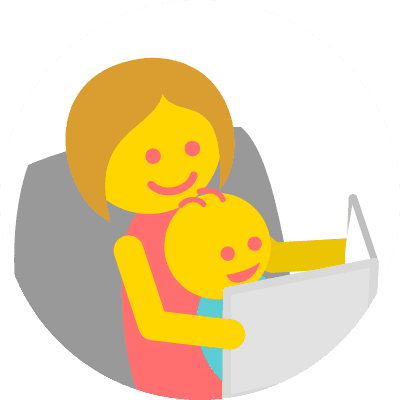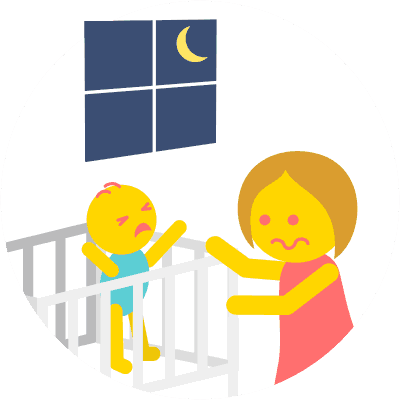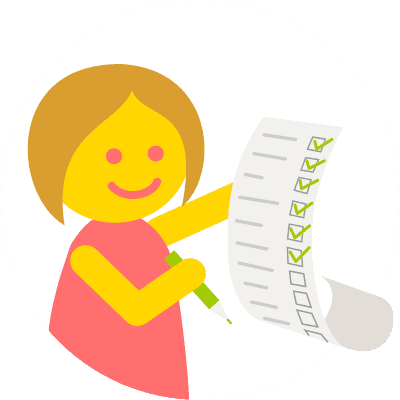Babysitting From Home (Pros, Cons, Laws & Requirements)


Written & Illustrated by
Matthew James Taylor
Kidsit Founder, General Manager

Reviewed & Edited by
Renee Irving Lee, B.Ed.
Special Education Teacher, Swim Coach, Childrens Author
Key Takeaways
- Babysitting from home “blurs the line” with running a daycare - local laws, licensing, and insurance will often determine whether you’re operating more like a babysitter or a childcare provider.
- There are special legal requirements and restrictions when providing childcare in your own home; make sure to check what your state / county / country requires.
- Costs can be higher when babysitting from home - insurance, utilities, toys, toys maintenance, and safety modifications may all add up.
- Liability and insurance matter more in a home-setting; you’ll need to ensure you’re covered in case of accidents or damages.
- Being at home can offer flexibility and control over your schedule, but you’ll also need to manage the added responsibilities of maintaining a safe and compliant environment.
It would be awesome if you could babysit out of your own home. But is that something you can actually make a reality, or is it just fantasy?
Can you babysit from home? Yes, you can babysit from home. Although there may be some additional restrictions compared to traditional babysitting jobs at another family's house. Depending on where you live, you might need additional licensing or certifications to babysit out of your own home.
In this article, we'll look at the key differences between babysitting from home and running a daycare, special restrictions that might apply in your area, insurance and other costs, plus lots more.
What's The Difference Between Babysitting From Home and Running A Daycare?
Isn't babysitting from home just running a daycare service?
When you're providing childcare out of your home, the line between babysitting and running a daycare can become a bit of a confusing grey area.
Here are some key things that separate a daycare service from a babysitter.
How Much Time Are You Spending Caring For Children?
Daycares provide consistent childcare on a regular basis. Usually daily. Parents might have to pay a fee to a daycare center even if your child misses a day.
Babysitting, on the other hand, is more of an occasional, short-term thing and typically isn't done on a daily basis.
If you're looking to start a babysitting business, you need to read my article: How to setup a babysitting business for some useful tips to get started.
What Level of Education, Certifications, and Training Do You Have?
Most daycare workers have post-secondary education related to child development or education. They are generally certified in both First Aid and CPR, and may even have food handler's certification and other training.
Babysitters generally have less training. They may or may not have CPR or First Aid training, and they usually have little or no formal education related to children.
Babysitters may or may not be required to have background checks completed. However, most states require ongoing childcare providers who provide consistent care to have a background check completed.
What Rate Do You Charge?
Babysitters usually charge more when you look at their pay at an hourly rate.
Daycares usually work out to be a cheaper hourly rate (potentially 3 times cheaper) However, daycares may also require you to agree to a certain number of hours per week or month, making them cost more overall.
I suggest you research the cost of daycare and the average babysitting rate in your area and make an informed decision on your home daycare rate so you remain competitive.
Average Babysitting Rate Per Hour By Country
(Calculated weekly from our live member data — Updated 16 Feb 2026)
| Country | 1 Kid | 2 Kids | 3+ Kids |
|---|---|---|---|
| United States | $16.82 | $18.50 | $20.18 |
| Canada | $18.33 | $20.16 | $22 |
| United Kingdom | £11.38 | £12.52 | £13.66 |
| Australia | $26.83 | $29.51 | $32.20 |
| New Zealand | $22.74 | $25.01 | $27.29 |
Search for your exact location to get a more precise average pay.
What's Your Availability Like?
Daycares normally have very consistent and reliable schedules when it comes to availability. Babysitters on the other hand usually don't guarantee that they'll be available on specific days or between certain hours.
How Many Children Are You Supervising?
Babysitting is typically a more 1-on-1 service provided just for your child, or the children in your family.
Home daycares may provide childcare for children from multiple different families at a time.
Who Can Babysit From Home?
Most governments don't have specific laws or requirements regarding babysitters. Normally they fall under the same general guidelines of other childcare providers such as daycare operators, teachers, and others.
Generally, I would recommend that babysitters try to hold themselves to the same legal standards that are required for daycares in their area.
Admittedly, there are lots of babysitters out there providing illegal services without the appropriate licenses or paperwork. While the chance of getting caught may feel quite low, particularly if you're just babysitting for family members or friends, the risk isn't non-existent. All it takes is one of the parents you babysit for to claim your babysitting services as a child expense on their taxes to get the authorities interested in you.
Are There Any Home Babysitting Restrictions in the United States or Canada?
In Canada, the only real limit on unlicensed babysitting or daycare is the number of children that you're able to watch. You're only able to care for 5 or fewer children under the age of 6, and you need to include any of your own children in that amount. You also aren't able to care for more than 2 children under the age of 2 at a given time.
In the United States, things start to get a lot more complicated. There are numerous different rules and laws for each state, with a lot of variation from state to state.
It really varies what is required to run a small-scale babysitting business in different states. About a third of states require licensing even if you're only babysitting one child in your home. Other states may allow you to watch up to 7 children at once without any kind of license.
Because of the variation and complexity involved, I recommend contacting your appropriate state agency to figure out if you need a license to babysit from home, and how to become licensed. There could be other requirements as well, such as special training or teacher certification that you need. You may also need to show proof of CPR and First Aid certification or background checks.
Are There Any Home Babysitting Restrictions in Australia?
If you live in Australia and you're 18 years or older, you need a Working With Children Check for any babysitting, aside from doing unpaid sitting for family members or friends.
A WWCC checks your criminal records across the entire country. It also looks at any professional conduct filings made by prominent institutions. Even once you pass the WWCC, there is still an ongoing monitoring process for applicants.
Your Working With Children Check takes about three weeks from when you apply until your application gets approved. It's valid for five years from the date it's issued unless it gets revoked.
Are There Any Home Babysitting Restrictions in the United Kingdom?
Requirements of home babysitters in the UK are arguably even more strict than those of Australia. The UK equivalent of a WWCC is applying to become a registered childminder.
You are required to register as a childminder if all of these conditions apply:
- You look after children for more than 2 hours per day.
- The children you watch are under the age of 8.
- You look after them in your own home.
- You get paid to look after them.
You aren't required to register as a childminder in the UK if you look after children between 6 pm and 2 am and it isn't in your own home. Typically most babysitters who offer services out of their own home will fall under the requirements and need to register.
The costs associated with this process are quite steep. To become a registered childminder, you'll need to pay up to a £103 registration fee each year, plus a £52.10 criminal record check, £90 health check, first aid and childcare training that will cost approximately £110 to £400, plus public liability insurance of £25 to £100.
Altogether you're looking at well over £300 just to get started. So I would highly recommend against babysitting within your own home in the UK. Only babysitting in other people's homes in the evening will help you avoid having to pay annual fees to be a registered childminder.
However, some parents might want a registered carer as a babysitter even if you're babysitting at their home. That's because only the babysitting services of registered carers can be deducted as an expense on their taxes.
Get Insurance To Babysit At Home
You hope that nothing bad ever happens while you're babysitting. But in case a child gets seriously injured or there's any other kind of emergency, you want to be sure that you have insurance to cover yourself for accidents, damages, and liability related to your childcare.
You've probably already got homeowner's insurance, but it's unlikely that your policy will cover you for anything that happens during the course of your home babysitting. So you'll need to get extra coverage to be sure you comply with any laws in your country that require it, as well as to protect yourself.
You'll want basic liability or umbrella coverage for generic things like property damage, fire, theft, or personal injury. Plus you'll also want health insurance, abuse and molestation coverage, worker's compensation, and hazard insurance.
I recommend meeting with a professional insurance agent to get advice specific to your area and be sure that you've got a personalized plan that meets your babysitting needs.
For more insurance-related information, be sure to read my other article: Do Babysitters & Nannies Need Insurance?
Work Out Other Costs of Babysitting At Home
If you decide to babysit from your own home, you'll have some additional expenses that you wouldn't normally need to consider when babysitting at a client's home.
At a bare minimum, you'll probably need food for the children. Even if it's just snacks. Younger kids need to eat smaller portions every few hours.
What do parents expect of babysitters regarding food? Read our article for the answer: Do babysitters provide food?
If you're babysitting younger children, expect to potentially spend more on diapers and other supplies. Parents may provide their own diaper bags when they leave their child with you, or they may reimburse you for your own expenses. Either way, it's always a good idea to have some extras on hand just in case.
If you're really serious about babysitting from home and will be running something more akin to a daycare, you may even make alterations to your house. For example, painting a special playroom, childproofing, and more.
You should have an emergency first aid kit on hand in your home as well.
At Kidsit we recommend this first aid kit, it's packed full of supplies that are perfect for babysitting!
Get & Keep Home Babysitting Clients
If you're looking to start offering babysitting services out of your home, the first step you'll need to take is finding some clients.
You might offer a similar occasional service that a regular babysitter would, or you might be babysitting for specific children and families on a more regular basis.
The people who are looking for a home babysitter are likely different than those who want a sitter to come and babysit at their own home. However, the process of finding clients is not all that different.
Start off by reaching out to family members and friends, because word of mouth is usually the best and easiest marketing tactic for babysitters.
You can also join a babysitting association or website to network and advertise your services. Social media is a great tool to connect with prospective clients in your area for free.
Finding repeat clients is ideal because you'll have clients coming back time and time again. Remember that it's often a lot easier to keep a family that you already babysit for than to try and find a new one!
Some home babysitters like to specialize in a certain age-range of children. Some sitters find dealing with babies easier, while some prefer older kids. It's all about what you're comfortable with. Although babysitting for a wide range of ages means more potential clients who would want to work with you.
Set Your Home Babysitting Prices
Setting your rates as a home babysitter can be tricky. A lot of the same rules that would apply to a regular babysitter are still valid considerations, although there are a couple of extra things you should consider as well.
To start off, it's a good idea to ask other babysitters in your area what they charge to decide on your own rate. Keep your years of experience and other factors in mind.
How many children you're watching is always a big one to think about. Usually, babysitters will have an initial rate, and then add $1 - $2 to their price per hour for each additional child.
The age of the children also matters. Infants require a lot more one-on-one attention and care, and you have a lot more responsibilities. I would definitely charge more for a baby than a more autonomous 9 or 10-year-old.
Other factors include the time of day, the length of time you're babysitting for, any special needs, and potentially other factors as well.
There are also some factors that are specific to home babysitting that you'll need to think about.
Since you're babysitting from home, you won't need to spend money on gas or other travel expenses to get to your job. You'll also probably save about 10 to 15 minutes of travel time that you normally would need to spend going to the client's home and back. So you may want to lower your rate slightly to account for this.
If you're babysitting at home full-time, you'll also want to consider the going rate for daycares and other childcare options in your area. If you're going to be competitive, you'll almost certainly need to charge less than a licensed daycare that employes fully trained staff.
Summary - The Pros and Cons of Starting a Home-Based Childcare Business
Babysitting from home comes with its own unique pros and cons to keep in mind:
Pros
- No travel time. You don't have to get in the car or take a bus to your babysitting job. Clients come to you.
- You can watch your own children at the same time. This can be a great reason to offer babysitting services. If you're taking care of your own children anyway, what's one more? (Keep in mind that your children count toward the total number of children you can watch, which will vary based on where you live.)
- You get the flexibility to make your own schedule. You can offer babysitting services during regular business hours, or you can choose to babysit evenings and weekends while keeping another full-time job. You have more flexibility in terms of taking time off too.
- It might be more convenient for parents. If you're watching children during the day, it might be easier for parents to just drop kids off at your house on the way to work, instead of waiting for you to arrive at their home.
Cons
- You're left with the mess. When you have a babysitting job at someone else's home, you try your best to keep things tidy. But when you leave at the end of your shift, it's pretty much out of your hands. But watching children at your own home means you're 100% responsible for cleaning up. You have to live with it!
- It’s more complicated than regular babysitting. Choosing to babysit from home means you'll need to look into the laws in your area, think about getting extra insurance, and other licensing requirements that can be either time-consuming or difficult.
- Your whole house is a play area. You'll need to make your house age-appropriate and safe for children. That means safety covers for all your electrical outlets, putting away sharp objects, child-proofing your drawers and cupboards, and more. You'll also want to make sure your yard is safe if children will be playing outside. Your home will need to really be dedicated to kids.
- Extra costs. When babysitting at home, you might be expected to provide snacks and toys for kids. That's in addition to any startup costs like insurance, licenses, and any alterations you need to make to your home.
Conclusion
Babysitting at home has some definite advantages, like not having to travel to your babysitting job. Your clients bring their kids to you!
But there are also some extra things that you need to consider when deciding to babysit from home.
Can you babysit from home? Definitely! Although there may be some restrictions.
Depending on where you live, the laws might be different babysitting at another family's home compared to watching their children at your own house. You may need special licenses or certification to watch even one child in your home in specific states or countries.
As a home babysitter, you may incur some extra costs such as having to buy food for kids or toys for kids you watch as well.
Overall, babysitting from home can be a reasonable option. But you should check your local laws and requirements before making a decision.
























